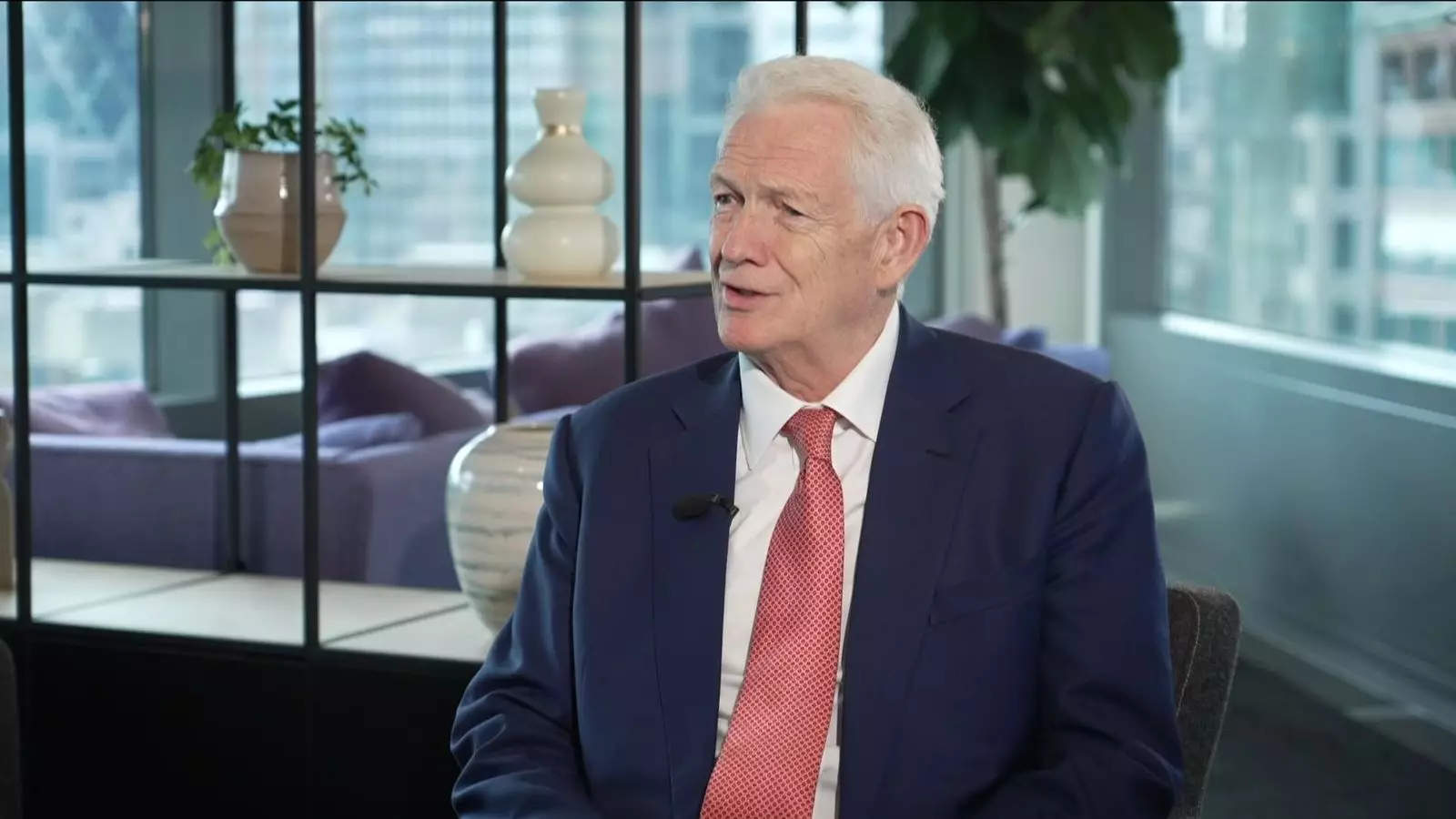In an astonishing twist of narratives, Rick Haythornthwaite, Chairman of NatWest, has publicly thanked British taxpayers for bailing out the bank during the 2008 catastrophe that obliterated so many livelihoods. This rather theatrical expression of gratitude comes just as the bank slips back into private ownership, framed by 17 years of government stewardship following a staggering £46 billion bailout—an action that many viewed as a necessary evil to prevent economic collapse. However, thanking the taxpayers feels more like a veneer applied to an undercurrent of audacity, where gratitude might mask a more insidious design to strip away the regulations that were put in place to protect us.
It might be tempting to view Haythornthwaite’s words as a genuine acknowledgment of the sacrifices made by everyday people. After all, they did not simply rescue a financial institution; they preserved the hopes of millions of depositors, homeowners, and small businesses. Yet, the irony is palpable. He extols the virtues of government intervention while simultaneously advocating for a relaxation of the stringent regulations designed to ensure that history does not repeat itself. Has the path of recovery led us to a point where gratitude morphs into a call for deregulation? This is a slippery slope, teetering precariously between nostalgic remembrance and reckless abandon.
Lessons Learned or Convenient Amnesia?
One cannot help but question the sincerity behind Haythornthwaite’s assertion that the bank has not forgotten “the lessons of the past.” Time and time again, history has proven that humans are remarkably adept at selective memory. The call for regulatory relief, especially in light of an unprecedented banking crisis, feels disingenuous at best. Haythornthwaite claims that this isn’t a “race to the bottom,” but how can any responsible citizen trust a financial institution that appears eager to shed the very safeguards designed to avert disaster?
We must remember that the initial regulations were not only necessary but were constructed from the ashes of an economic implosion that culminated in widespread suffering. The public’s anger at the time was rooted in the deep-seated realization that those in lofty towers had gambled with public livelihoods, often without repercussion. Yet now, at the beck and call of an opportunistic narrative, we find ourselves being told that perhaps we’ve overreached in our attempts to safeguard against a repeat of those grim days.
The Regulatory Pendulum: A Misguided Swing?
Haythornthwaite’s statement about the regulatory pendulum swinging “too far” raises unsettling questions about the moral fabric of our banking system. It posits an argument steeped in economic growth and competitiveness, neglecting the embedded responsibility of banks to their stakeholders. The notion that some duplications in regulations must be eliminated sounds appealing in theory, but the practical implications of such an endeavor could lead to an erosion of accountability that ultimately serves the whims of corporate greed at the expense of public trust.
This discourse, recently buoyed by Chancellor Rachel Reeves’ open-mindedness regarding the lifting of regulations like the cap on bonuses and the call for an end to ring-fencing, is particularly troubling. These measures were instituted to prevent banks from engaging in reckless behaviors, yet we find ourselves at a crossroads where economic expediency takes precedence over ethical responsibility. Should the pursuit of profit overshadow the hard-earned lessons learned from financial calamities not just in Britain, but worldwide?
The Shifting Sands of Public Trust
What we are witnessing is a delicate balancing act, a nuanced negotiation between banks demanding greater operational freedom and the public’s rightful demand for stability and transparency. The remnants of the 2008 financial crisis still loom large in the collective consciousness. While it is easy to celebrate newfound opportunities for financial growth, we must demand that the ghosts of past mistakes remain woven into the framework of our banking systems.
The dichotomy presented by Haythornthwaite’s affectionate acknowledgment of taxpayers and his push for regulatory reform creates an unsettling complexity; as he pays lip service to the public’s sacrifices, we must ponder the cost of his vision for the future. Equally alarming is our own complacency, a willingness to accept the palatable narrative presented by those who once led us into economic turmoil. The question remains whether we are prepared to stand firm against this insidious return to “business as usual,” ensuring that our hard-won lessons from the past sustain our financial future.

